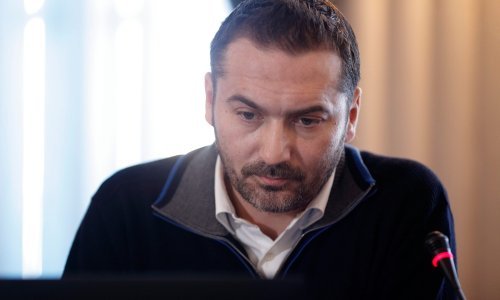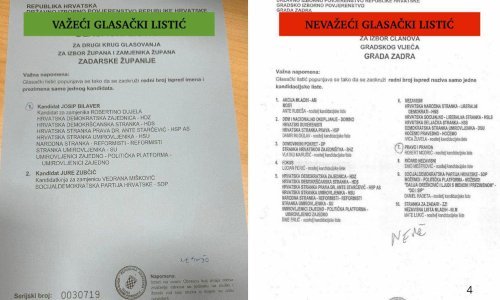It is high time that politicians and the media took seriously the fact that a significant portion of the population expresses some kind of scepticism towards Croatia's accession to the European Union, representatives of the nongovernmental organisation GONG told a news conference in Zagreb on Saturday.
"It is high time that the political elite and media started taking seriously those 40 percent of citizens so as to avoid the negative effect of their not turning out for the referendum (on EU accession)," GONG coordinator Jelena Berkovic said presenting a survey on euroscepticism in Croatia.
The survey was conducted by GONG in Osijek, Zagreb, Split and Rijeka and it consists of interviews with 32 people who provided arguments for their position that Croatia should not join the EU, or at least not at present.
Contrary to the usual perception, the interviewed people do not make up a closed, conservative, xenophobic, ethnocentric or anti-democratic group. Quite the contrary, the questions they raise concern the lack of timely and complete information (about the EU), law, equity, effects of liberal capitalism, how far liberal democracy can go, Croatia's capacity to function in conditions of EU membership, and the alienation of political elites from citizens both in Croatia and in the EU, reads the GONG survey.
"Citizens must make an informed and mature decision on Croatia's accession to the EU. For that decision to be informed and mature, citizens should be provided with all information on what the EU means to them and enable them to discuss that information," Berkovic said.
GONG believes that the difference between so-called Europhiles and Euroskeptics could have been already annulled had the government and political elite created room on time for a debate based on arguments.
The people interviewed as part of the survey include retired and active university professors, economists, farmers, doctors, lawyers, workers, business people, engineers, urban planning experts, politicians and civil society activists. Some of the respondents, and they were all interviewed on condition of anonymity, were active participants in the negotiating process.
Citizens mostly object to the lack of information on the EU or believe that Croatia is still not ready to join the bloc. Many do not trust political elites, both in Croatia and the EU. The group of Eurosceptics also includes people who fear losing national and socio-cultural identity.
A week ago, GONG requested the government, in line with the law on the right to access information, to publish the content of all provisionally closed policy areas in Croatia's EU entry talks, together with possible annexes, saying it would ask a court to make the government do it if the government failed to respond to its request.
GONG also announced that it would organise public debates between those who support Croatia's EU entry and those who are against it.


































